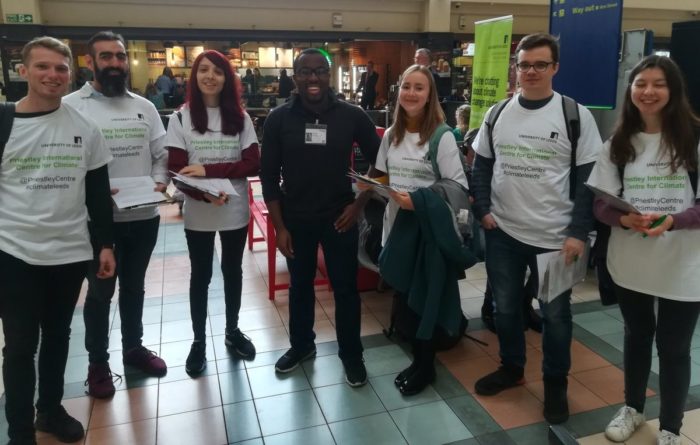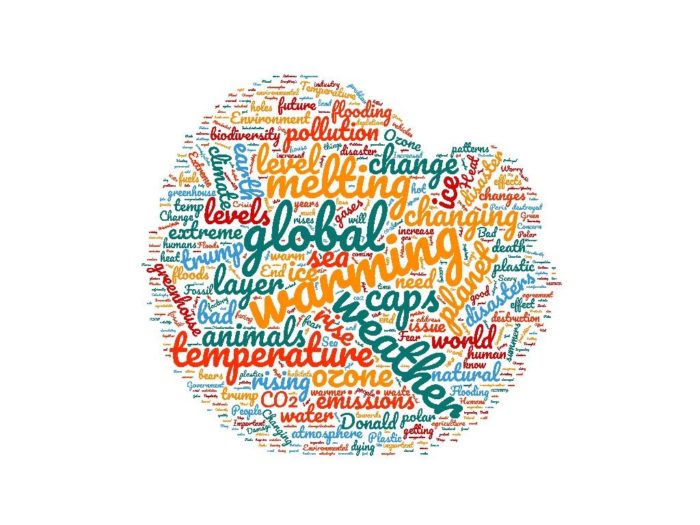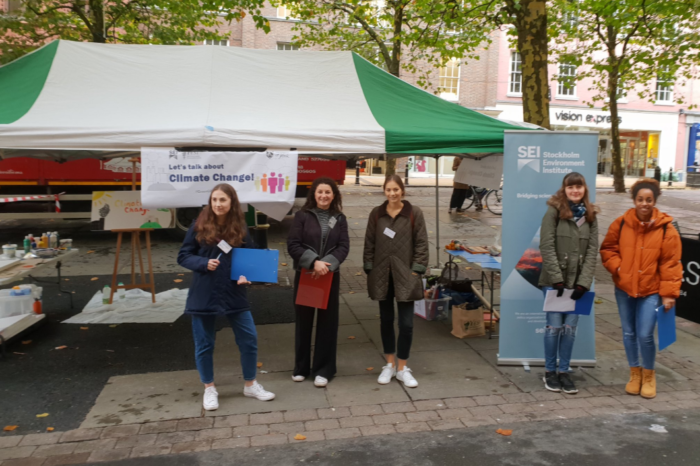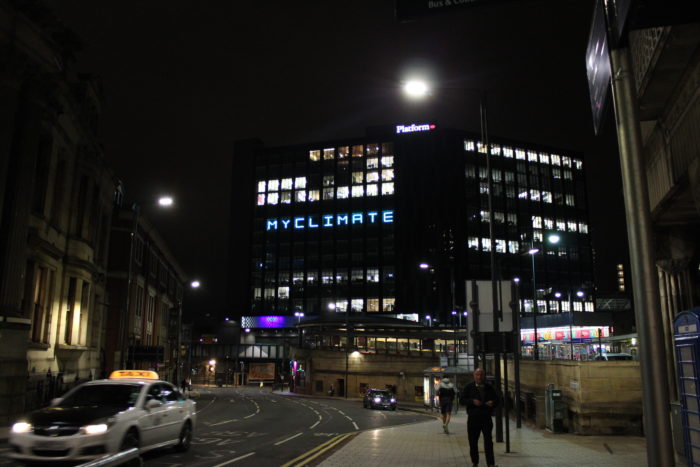Northern surveys show high levels of concern about climate change

Public concern about climate change appears to be on the rise, according to a survey on climate solutions carried out by a group of universities in the north of England during Green GB Week.
The survey, produced by the Priestley International Centre for Climate, was conducted using face to face interviews at locations in Leeds, York, Newcastle and Manchester simultaneously.
Just over half (50.6%) of those surveyed said they were “very concerned” about climate change while a further 39% were “fairly concerned”. Only ten per cent were not very concerned or not at all concerned. A substantial majority (82%) said they had personally noticed signs of climate change.
Results of the snapshot survey contrast with the much larger British Attitudes Survey conducted in July 2018, which found that only a quarter of people were very or extremely worried about climate change, while 45% were “somewhat worried” and 28% were either “not very worried” or “not at all worried” about it.
Solutions focus
The solutions survey, which was aimed at discovering what actions people favour to tackle climate change, showed that walking and cycling were the most favoured choices (82%), while using public transport and improving home energy efficiency were also very popular (around 70%). Shopping locally (66%) and cutting down on meat and dairy (55%) were relatively highly rated but only 35% were prepared to fly less, which has the highest carbon footprint of all the personal actions listed.

Priestley Centre researchers conducting their survey at Leeds Station (Prof Frank Finlay)
When asked to choose three actions they would like to see happening locally to reduce carbon emissions, over two thirds picked renewable energy. Getting supermarkets to reduce food waste (almost 50%) and ensuring new homes are low carbon (43%) were the other popular choices.
In response to an open question on what would most inspire respondents to take personal action on climate change, the clearest call was for government interventions, ranging from incentives, influence big businesses to make change, demonstrating leadership and creating new legislation (see word cloud, top).
Ice caps and Trump
Responses to another open question, “What first comes to mind when you hear the words ‘climate change’?” were mixed: many cited melting ice caps and rising temperatures but confusion with the ozone layer was clear. Death and disaster and the impact on animals and biodiversity also featured, as did mentions of pollution, plastic and American president Donald Trump (see word cloud below).
 The sample size for the survey was 419. The survey was also made available online, which produced a further 272 responses. These showed a demonstrably higher level of concern (76% were “very concerned”) and greater willingness across the board to take personal action, including on reducing flying (47%). As these responses were self selecting they were tallied separately.
The sample size for the survey was 419. The survey was also made available online, which produced a further 272 responses. These showed a demonstrably higher level of concern (76% were “very concerned”) and greater willingness across the board to take personal action, including on reducing flying (47%). As these responses were self selecting they were tallied separately.
The surveys were conducted for a public engagement session called “Climate Chats” by volunteers from the Universities of Leeds, York (Stockholm Environment Institute and York Environmental Sustainability Institute), Newcastle and Manchester (Tyndall Centre) and processed by Priestley Centre researcher Kate Sambrook. Art, music, poetry and museum artefacts were used by the researchers to attract attention and start conversations with the public, including a performance at Leeds Station.

Researchers from SEI and YESI in Parliament Street, York
Co-ordinated public engagement
The surveys took place on Monday 15 October, the first day of Green GB Week and seven days after the publication of the IPCC’s Special Report on Global Warming of 1.5°C. The report made headlines around the world, with the urgency and scale of emissions reductions needed to stay under a temperature rise of 1.5°C coming through strongly.
The climate solutions survey was also used to collect questions from members of the public to put to a panel of climate scientists from the four universities and other experts at a Climate Question Time event on Thursday 16 October. The sold out event, which was held in the council chamber at Leeds Civic Hall, attracted an audience of 120 and was livestreamed on the University of Leeds YouTube channel.
Questions were asked about tipping points, the influence of climate sceptics, keeping below 1.5°C, plant-based diets, fracking and climate targets, the role of local government in tackling climate change and what individuals could do to tackle climate change.
Climate messages in lights
A social media campaign that put people’s thoughts about climate change in lights was also used to engage the public in the run up to, and during Green GB Week.

The #MyClimate Twitter campaign asked people to respond to the question, “What does climate change mean to you?” in words of nine characters or less. Over 150 responses were curated by a team of Priestley Centre volunteers led by postgraduate researchers James Norman and Clare Martynski and displayed in 2m-high illuminated letters in the windows of the Platform building adjacent to Leeds Station.
The campaign produced negative words such as “destruction”, “extinction” and “scary” but also more positive messages with words like “solutions”, “caring” and “fairness”. Dr Chris Smith, who was a contributing author to the IPCC Special Report, also used the digital installation to summarise the report’s key messages.
The digital installation was the work of creative producer Suzie Cross and University of Leeds Cultural Fellow Dave Lynch and supported by Leeds BID and Bruntwood.
Read about the Priestley Centre’s full programme of events.
Read Dr Milena Buch’s Priestley blog on how much individuals can do to reduce their carbon footprint
Read Brett Cherry’s blog of his experience of conducting the survey in Newcastle
See the survey results in full (showing separate analyses for online and face to face interviews)
